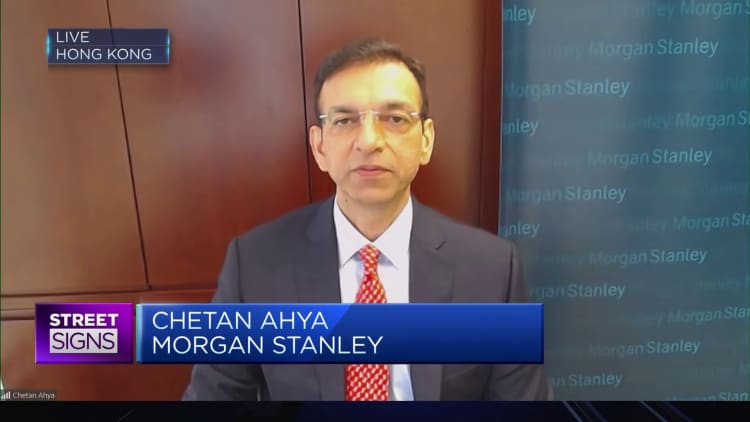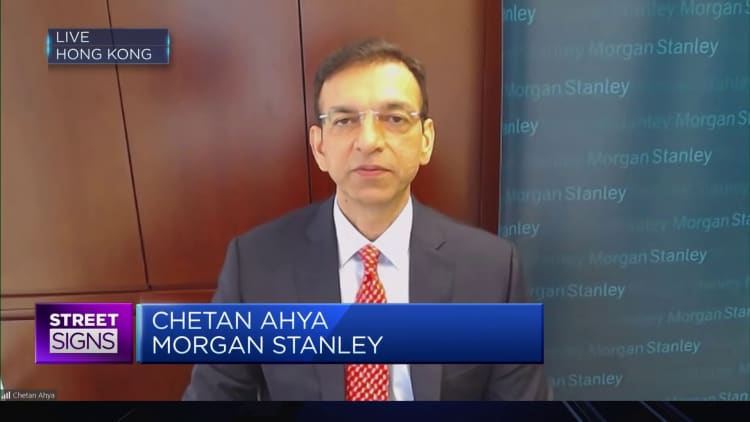Workers load goods for export onto a crane at a port in Lianyungang, Jiangsu province, China June 7, 2019.
Reuters
BEIJING — China’s Commerce Ministry on Wednesday said non-economic factors were growing and interfering with the country’s foreign trade which was facing an “extremely severe” situation in the second half of this year.
“Some countries’ forceful push for ‘decoupling,’ ‘severing [supply] chains’ and so-called ‘de-risking’ are human-made obstacles blocking normal commerce,” Li Xingqian, the head of the ministry’s external trade department, said in Mandarin, according to a CNBC translation. He was speaking to reporters at a press conference about the ministry’s work in the first half of the year.
China’s exports, a significant contributor to domestic growth, have plunged in recent months as global growth has slowed.
On Wednesday, Li noted the overall slowdown. He also said that since trade had risen during the three years of the Covid-19 pandemic, that had set a high base for this year’s figures.

Li also directly referenced calls for supply chain diversification.
“Companies say some countries’ politicization of trade has forced orders and production to move out, damaging the economic interests of both suppliers and buyers,” he said. He added the ministry would help businesses to cope with “unreasonable trade restrictions.”
The ministry did not say anything about its own recently announced export controls, set to take effect Aug. 1 on two key metals.
The U.S. is using export controls of its own in an effort to limit China’s development of high-end tech. Trade tensions between the U.S. and China have escalated over the last few years, prompting other countries to take action as well.
China, meanwhile, is looking to retain and attract foreign investment. Apple’s Tim Cook, Tesla‘s Elon Musk and many other business leaders have traveled to China since it relaxed its border restrictions this year.
The Commerce Ministry said Wednesday that its minister, Wang Wentao, has met with more than 20 visiting executives of foreign companies this year. The ministry reiterated its efforts to establish regular roundtables with foreign businesses in China and address operational challenges.
Among other plans, the ministry said it would make changes to allow foreign investors to increase the size of their strategic investments in listed companies.


